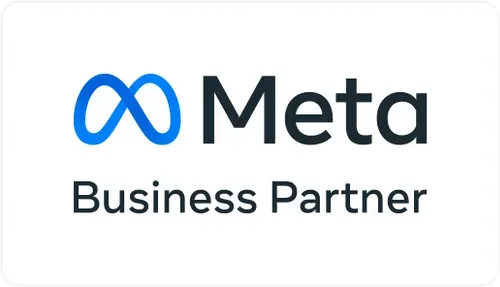The Impact of Artificial Intelligence on the Future Digital Workforce
- Apr 29, 2024
In the rapidly evolving landscape of the digital age, Artificial Intelligence (AI) stands as a transformative force reshaping the workforce. Its impact spans industries, redefining job roles, enhancing productivity, and fostering innovation. To understand the profound implications of AI on the future digital workforce, let’s delve into the data and trends shaping this paradigm shift.
Embracing Automation
According to a report by McKinsey Global Institute, AI and automation technologies could increase global productivity by up to 1.4% annually. This translates to an estimated $13 trillion in economic value by 2030.
AI-driven automation streamlines processes reduces manual effort, and optimizes resource allocation. AI-powered robots enhance efficiency and precision in manufacturing, leading to significant cost savings and higher output. For example, the automotive industry has seen a 25% increase in productivity due to the adoption of AI-enabled automation.
Augmenting Human Intelligence
A survey conducted by PwC found that 72% of business leaders believe AI will be a significant business advantage.
AI augments human intelligence by analyzing vast amounts of data to provide valuable insights. In healthcare, AI algorithms assist doctors in diagnosing diseases with greater accuracy, leading to improved patient outcomes. Similarly, in finance, AI-powered predictive analytics models identify market trends and investment opportunities, enabling better decision-making.
Redefining Job Roles and Skills
As per the World Economic Forum’s findings, the integration of AI and automation is prompting a substantial need for re-skilling or upskilling among employees. In response, the Reskilling Revolution initiative was launched to reshape education, skills, and learning, with the goal of preparing one billion individuals for the future economy and society. Commencing in January 2020, this initiative endeavors to equip people worldwide with improved education, enhanced skills, and increased economic prospects by the year 2030.
As AI automates routine tasks, job roles are evolving to emphasize creativity, critical thinking, and problem-solving skills. Roles such as data scientists, AI ethicists, and automation specialists are in high demand. Organizations are investing in training programs to equip their workforce with the skills needed to thrive in the AI-driven economy.
Fostering Collaboration
A study by Deloitte found that 85% of companies consider AI to be a strategic priority for collaboration between humans and machines.
AI-powered collaboration tools facilitate communication and knowledge sharing among team members. Virtual assistants and chatbots streamline workflows, enabling seamless cooperation regardless of geographical boundaries. Collaborative platforms like Slack and Microsoft Teams leverage AI to enhance productivity and teamwork in remote and hybrid work environments.
Addressing Ethical and Social Implications
The AI Now Institute reports that biased AI algorithms can exacerbate societal inequalities, leading to discriminatory outcomes in areas such as hiring and lending.
Ethical considerations surrounding AI include data privacy, algorithmic bias, and job displacement. Regulatory frameworks such as the General Data Protection Regulation (GDPR) aim to ensure transparency and accountability in AI deployment. Organizations are increasingly prioritizing ethical AI practices to mitigate risks and uphold societal values.
Cultivating a Future-ready Workforce
A study by IBM found that 120 million workers in the world’s 12 largest economies may need to be retrained or reskilled in the next three years due to AI and automation.
Preparing for the AI-driven future requires a holistic approach encompassing education, training, and lifelong learning. Governments, educational institutions, and businesses must collaborate to develop tailored programs that address the evolving needs of the workforce. Embracing a growth mindset and fostering a culture of continuous learning will be essential in navigating the complexities of the digital age.
The impact of Artificial Intelligence on the future digital workforce is profound and multifaceted. By leveraging automation, augmenting human intelligence, redefining job roles and skills, fostering collaboration, and addressing ethical and social implications, we can cultivate a future-ready workforce capable of thriving in the AI-driven economy. The key lies in harnessing the transformative power of AI to create a more inclusive, equitable, and prosperous future for all.
The transformative potential of Artificial Intelligence (AI) on the future digital workforce is immense and undeniable. As we navigate through the evolving landscape of work, it’s crucial to recognize the symbiotic relationship between AI technologies and human capabilities. While AI streamlines processes, enhances productivity, and unlocks new opportunities, it’s the human ingenuity, creativity, and empathy that will continue to drive innovation and shape the digital workforce of tomorrow. As we look ahead, companies like Evolve Digitas stand at the forefront, harnessing the power of AI to empower individuals, redefine roles, and foster a more collaborative and inclusive work environment. Together, we embark on a journey where AI not only augments our capabilities but also enriches our collective potential, paving the way for a more dynamic and resilient workforce in the digital age.
Popular Posts
-
 How to Balance Innovation with Data Privacy Compliance07 Apr 2025
How to Balance Innovation with Data Privacy Compliance07 Apr 2025 -
 The Rise of Zero Trust Security in Digital-First Enterprises04 Apr 2025
The Rise of Zero Trust Security in Digital-First Enterprises04 Apr 2025 -
 Automating Workflows: The Key to Future-Proofing Your Business02 Apr 2025
Automating Workflows: The Key to Future-Proofing Your Business02 Apr 2025 -
 The Ethical Challenges of AI in Digital Transformation: Navigating Bias, Privacy, and Transparency04 Mar 2025
The Ethical Challenges of AI in Digital Transformation: Navigating Bias, Privacy, and Transparency04 Mar 2025






